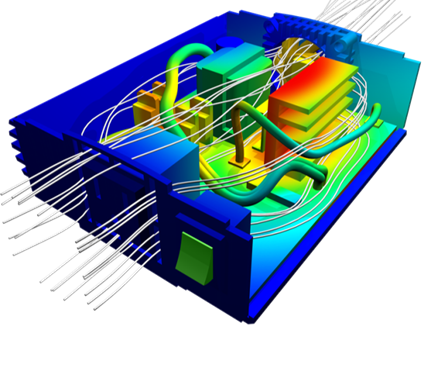ME415 - Computational Fluid Dynamics

Instructor
Kannan Iyer
Section
Only one section
Semester
Autumn
Course Difficulty
Quite easy to understand and follow the course contents if you are thorough with the weekly assignments and do it yourself.
Time Commitment Required
Weekly assignments require around 5-6 hours to solve.
Grading
Not that chill, professor can change the weightage if he feels that students haven’t performed well in the exams.
Attendance Policy
80 % required but not enforced.
Pre-requisites
Although Heat transfer is a pre-requisite, but our professor allowed us to take the course by doing the registration externally.
Topics Covered in the Course
Introduction to CFD, Governing equations, Principle of finite difference as approximation to derivatives, Classification of PDEs, Characteristics, Consistency and Stability. Solution of Steady and transient diffusion in Cartesian, polar and boundary fitted coordinate systems. Solution of steady and unsteady transport equation, Control Volume Methodology, Solution of transport equations, Solution of NS equations by Stream Function and Vorticity method, MAC formulation, SIMPLE and its derivatives for solving NS equations, Artificial Compressibility method for solving NS equations. Solution Methodology for parabolic flows and Compressible flows
Mechanism of Instruction and Teaching Style
Teaching through slides - quite boring!
Assignments and projects in the Course
Initial assignments are very easy, but the difficulty level increases from easy to difficult. No Projects.
Exams
No quiz, Midsem and Endsem are both Moderate and Open notes.
Reference Material
- Notes given by the Professor, S. Chapra and R. Canale, Numerical Methods for Engineers, Fifth Edition, McGraw Hill, 2005.
- K. Hoffman, and S. Chiang, Computational Fluid Dynamics for Engineers- Vols. 1,2, Engineering Education System, Wichita, Kansas, 1993
Importance of Course
Very useful in TFE courses and computational courses.